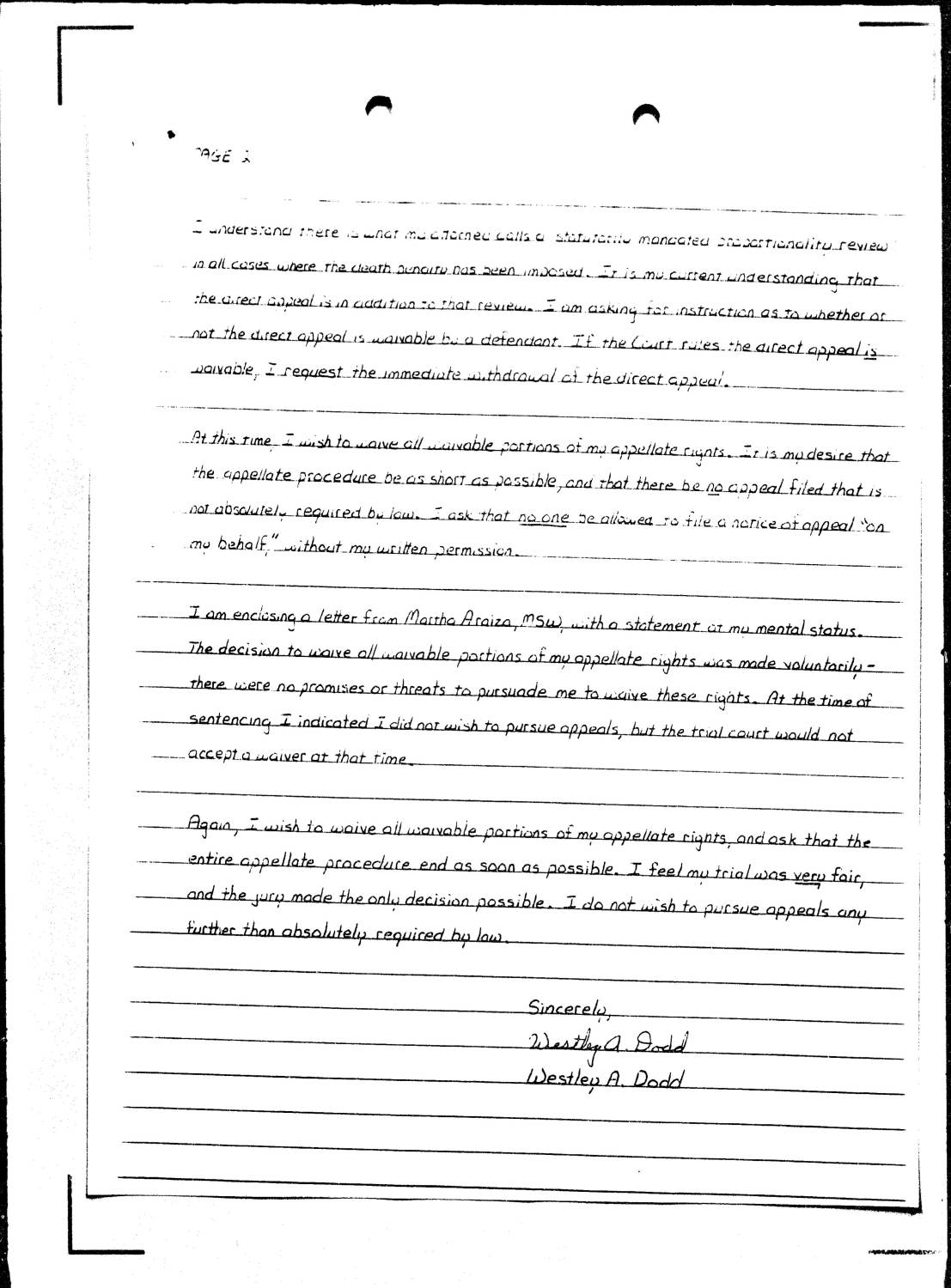HBM120: Own Worst Interest
/In the fall of 1989, in Vancouver, Washington, a short, 29 year-old man named Westley Allan Dodd raped and murdered three young boys. The boys were brothers Cole and William Neer, ages 10 and 11, and four year old Lee Iseli.
Content Note:
Sexual violence, suicide and capital punishment
A few weeks later, police arrested Westley at movie theater after he tried and failed to abduct another boy. He quickly confessed to the three murders. The prosecution sought the death penalty, and Dodd pled guilty.
Death penalty cases take a long time due to all the appeals built into the process. These appeals are designed to make sure the state hasn’t made any mistakes in the death sentence. They check for things like juror misconduct, incompetent defense lawyers, new evidence. Death penalty cases take years, sometimes decades.
Westley Allan Dodd did not want that. Instead, he wanted to be executed as quickly as possible.
In letters to the Supreme Court of Washington, Dodd urged the court to allow him to waive his right to appeal his death sentence. He believed he deserved to die for what he did, and wanted it done as soon as possible. Dodd was what’s known as a “volunteer”–someone who gives up their rights in order to hasten their own execution. The Death Penalty Information Center cites about 150 cases of “volunteers” in the United States.
Dodd’s case sparked debate both among people who supported and opposed the death penalty. Some argued he had the right to choose whether the court would review the validity of his death sentence. Others argued that the law ensures that all defendants have due process whether they want it or not.
In the meantime, Dodd continued to advocate for his own execution in interviews and in exchanges with his pen pals. He said he felt remorseful, and even wrote a self-defense booklet for kids to learn how to stay safe from men like him. The booklet was called “When You Meet A Stranger”.
The debate made its way to the Washington Supreme Court. In a 7-2 ruling, they decided that Dodd did, in fact, have the right to waive his remaining appeals. After just three years on death row (5 years shorter than the national average at that time) the State of Washington hanged Westley Allan Dodd.
On this episode Bethany Denton interviews Dodd’s former attorney Gilbert Levy. And defense attorney Jeff Ellis, who was a young lawyer during the time of the Dodd trial. Bethany also talks to Becky Price, who was one of the recipients of Dodd’s pamphlet “When You Meet A Stranger”.
Producer: Bethany Denton
Editor: Jeff Emtman
Music: The Black Spot










